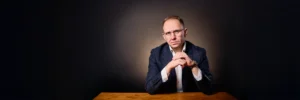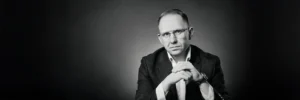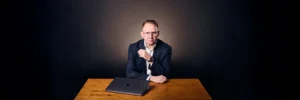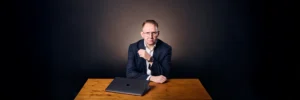A wise man once said
William Shakespeare once wrote, “A fool thinks himself to be wise, but a wise man knows himself to be a fool.” Hundreds of years later, and Shakespeare’s words still ring true. People with low intelligence and little knowledge seem to have endless confidence. While smart, qualified individuals continuously doubt themselves.
This idea was given a name; the Dunning Kruger effect. A pair of psychologists, Dunning and Kruger, explored this principle to better understand why those will lower intellectual abilities seem to possess more confidence than those who outsmart them. Dunning and Kruger experimented on a group of undergraduate students by testing them and then asking them how they think they did.
The results were conclusive. Students that scored the lowest always overestimated their abilities. By a lot. They thought they scored above average when actually, they managed the opposite. In contrast, the highest-scoring students consistently underestimated their scores. They knew they did quite well, but when asked how they performed compared to the others, the majority estimated that they scored around average or even below average.
So, Shakespeare was right. But why is that? Why do those without the knowledge overestimate, and those with it underestimate?
The answer lies in poor self-awareness; Ignorance really is bliss. Or rather, ignorance is confidence.

To put it simply, people with a lower IQ or who do not possess specific skills just don’t recognise their own incompetence or lack of knowledge.
Let’s say you started learning chess. After learning the basic moves and getting the gist of the game, you might begin to win a few games. You begin to believe that you are a good chess player. Your confidence grows. You know how to play chess. But what you don’t know is how much you don’t know.
Why? Because you don’t know enough to assess your skills, and you don’t understand enough to grasp the truth.
Someone with a lack of knowledge is unable to look at their performance and accurately judge themselves. So, they believe that they’re, essentially, quite good at what they do.
Now imagine someone who’s been playing chess for a few years. They’ve been to a few tournaments; they know the strategy and the names of specific combinations. But they have become aware of how much they don’t know. They see how much they have to learn, and it is daunting. So, their confidence drops. They can see the skills they lack and believe they are average.
It’s natural to be slightly intimidated by all the things we don’t know. To see the mountain we have to climb and be daunted by the work ahead. At some point, we’ve all fallen into the Dunning Kruger effect trap. What’s crucial to remember is that being aware is the first step to gaining knowledge. When you feel incompetent, ignorant, and lacking in skills, the Dunning Kruger effect teaches us that how we see ourselves is not accurate.
In fact, the Dunning Kruger effect teaches us that if we have no doubt, that if we believe ourselves to be fully aware and knowledgeable, we probably aren’t. When you feel doubt, that’s an indication of how far you’ve come, and it’s the first step in getting even further. Learning is the way forward. If you’ve got nothing left to learn, you’re further behind than you think you are.
The more you learn, the more you realise you don’t know – and that gives you room for improvement.
book your free initial consultation session!
Challenge your claims – and your reasoning
Do you apply the same logic to every problem you encounter? Play the devil’s advocate to test yourself on your skills and abilities. Trying new things can help you break out of patterns that increase your knowledge and your confidence. Recognise the faults in your thinking, and improve yourself.
A significant aspect of this process is learning to take criticism and advice. Mistakes and errors are great starting points for progressing yourself – so take them seriously. If all you do is succeed, then you’re doing something wrong. Finding faults or gaps in your skills, knowledge, or actions is a sign you’re combatting the Dunning Kruger effect.
This can be a difficult process. You have to question longstanding views about yourself. Criticise your past actions and beliefs. What are you good at? Are you really that good? What’s missing? Where can you be better?
It’s hard to face the idea that your strengths may, in fact, be a part of your weakness. Recognising this can help push you onwards and ensure you achieve your goals. We’ve all felt both the doubt and the confidence of the Dunning Kruger effect at some point. A wise man acknowledges it and works to change; a fool does nothing. So, are you a fool?












